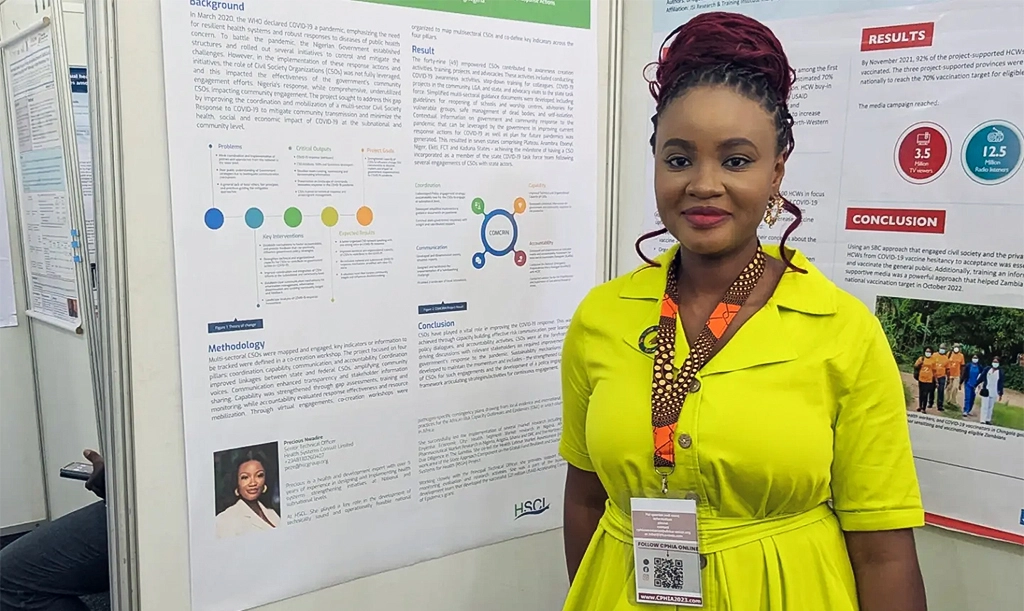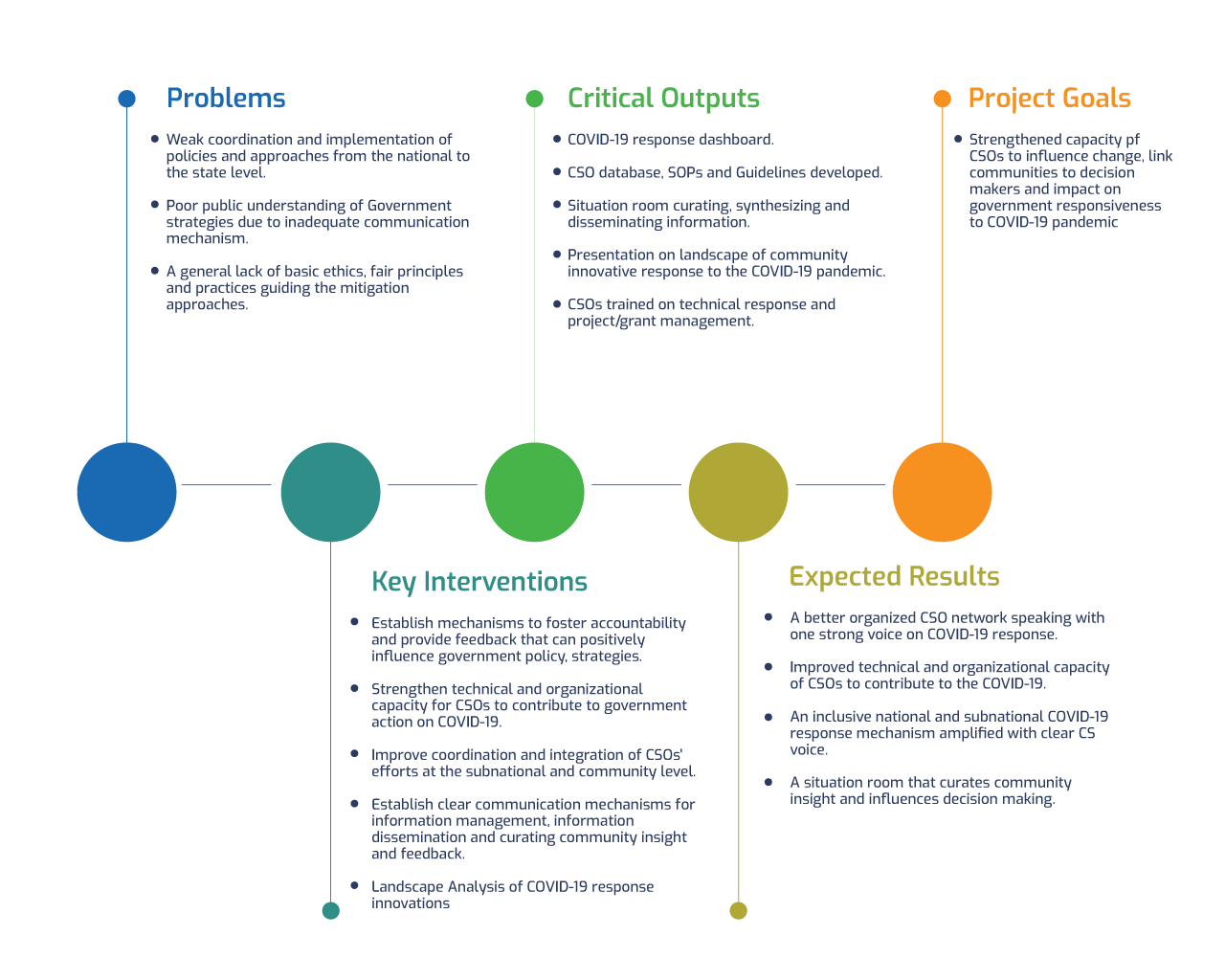
STRENGTHENING CIVIL SOCIETY ENGAGEMENT FOR EFFECTIVE COVID-19 RESPONSE IN NIGERIA.
Author: Precious Nwadire1*
Co-Authors: Ifeoma Chukwumerije2, Maxwell Obubu3, Alozie Ananba4, Nkata Chuku5
1,2,3,4,5 Health Systems Consult Limited (HSCL), Abuja
1* peze@hscgroup.org, +2348130260407
Background
In March 2020, the WHO declared COVID-19 a pandemic, emphasizing the need for resilient health systems and robust responses to diseases of public health concern. To battle the pandemic, the Nigerian Government established structures and rolled out several initiatives to control and mitigate the challenges. However, in the implementation of these response actions and initiatives, the role of Civil Society Organizations (CSOs) was not fully leveraged, and this impacted the effectiveness of the government’s community engagement efforts. Nigeria's response, while comprehensive, underutilized CSOs, impacting community engagement. The project sought to address this gap by improving the coordination and mobilization of a multi-sector Civil Society Response to COVID-19 to mitigate community transmission and minimize the health, social and economic impact of COVID-19 at the subnational and community level.

Methodology
Multi-sectoral CSOs were mapped and engaged, key indicators or information to be tracked were defined in a co-creation workshop. The project focused on four pillars: coordination, capability, communication, and accountability. Coordination improved linkages between state and federal CSOs, amplifying community voices. Communication enhanced transparency and stakeholder information sharing. Capability was strengthened through gap assessments, training and monitoring, while accountability evaluated response effectiveness and resource mobilization. Through virtual engagements, co-creation workshops were organized to map multisectoral CSOs and co-define key indicators across the four pillars.
Results
The forty-nine (49) empowered CSOs contributed to awareness creation activities, training, projects, and advocacies. These activities included conducting COVID-19 awareness activities, step-down training for colleagues, COVID-19 projects in the community, LGA, and state, and advocacy visits to the state task force. Simplified multi-sectoral guidance documents were developed, including guidelines for reopening of schools and worship centres, advisories for vulnerable groups, safe management of dead bodies, and self-isolation. Contextual information on government and community response to the pandemic that can be leveraged by the government in improving current response actions for COVID-19 as well as plan for future pandemics was generated. This resulted in seven states comprising Plateau, Anambra, Ebonyi, Niger, Ekiti, FCT and Kaduna States - achieving the milestone of having a CSO incorporated as a member of the state COVID-19 task force team following several engagements of CSOs with state actors.

Conclusion
CSOs have played a vital role in improving the COVID-19 response. This was achieved through capacity building, effective risk communication, peer learning, policy dialogues, and accountability activities. CSOs were at the forefront of driving discussions with relevant stakeholders on required improvements to government’s response to the pandemic. Sustainability mechanisms were developed to maintain the momentum and includes – the strengthened capacity of CSOs for such engagements and the development of a policy engagement framework articulating strategies/activities for continuous engagement.
Keywords: COVID-19, Civil Society Organizations, Response Actions, Capability strengthening, Nigeria







